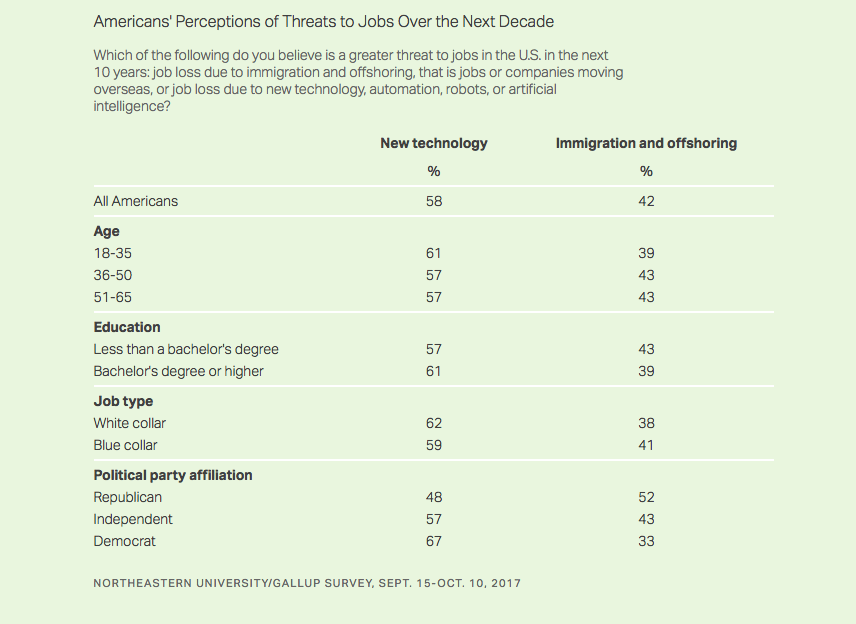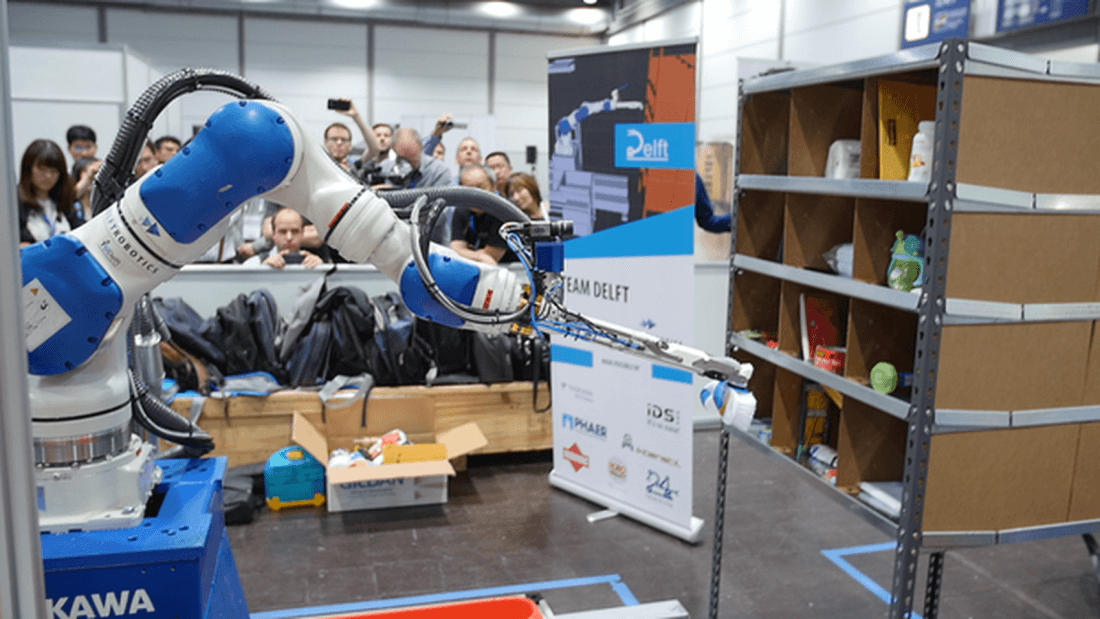Although Americans worry about the threat that immigration and outsourcing pose to the nation's jobs, most citizens are more concerned about the effects of new technologies. According to Gallup survey results released last week, 58 percent of respondents said AI, robotics, and automation would cause more job losses over the next ten years than new workers entering the country and companies moving overseas.
3297 Americans responded to the survey, which Gallop created in collaboration with Northeastern University. It was split into four categories: age, political party, education, and job type.
According to the results, white-collar workers (62 percent) and Democrats (67 percent) are the demographics most concerned about new tech eliminating jobs, though it's worth noting that only 3 percent fewer blue-collar workers feel the same.
Those under 35 also think tech is more likely to cost people their livelihoods than outsourcing/immigration. 61 percent are concerned about technology's effect on US jobs, whereas 39 percent chose immigration and offshoring as a bigger threat. For those over 35, 57 percent think automation will take more jobs, compared to 43 percent who believe otherwise.

The only category that saw technology as a lesser threat than immigration and offshoring was the Republicans, 52 percent of whom picked the latter option as their bigger concern.
The survey's results match those of a similar study by Pew Research last year, which found that 72 percent of US adults are worried about a future where robots and computers replace humans in the workforce, but only 30 percent of those surveyed thought their jobs were under threat.
Despite the results, it seems that most people are still fans of technology and the benefits it can bring. 77 percent of respondents said they believed artificial intelligence would have a positive impact on their lives over the next ten years.
"It is clear that while Americans are optimistic about the positive impact that AI may have on people's jobs and lives, many are also concerned about the short-term effect on jobs. However, the relatively low proportion of U.S. workers who are worried about their own jobs suggests some may be underestimating the likely impact of this technology," reads the study's conclusion.
